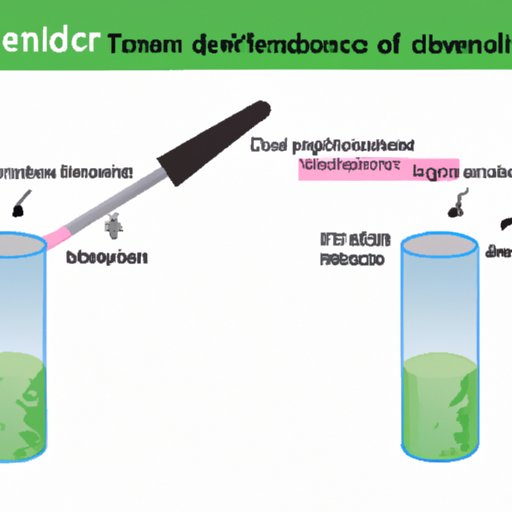Introduction
Welcome to the essential guide to identifying the dependent variable in scientific experiments. Whether you’re just starting out in scientific research or already experienced in the field, it’s important to clearly identify the dependent variable in your experiments. This article is designed to provide you with a comprehensive guide to dependent variables, from defining what they are to understanding their importance and practical tips for identifying and selecting the right variable.
The Essential Guide to Identifying the Dependent Variable in Your Scientific Experiments
The dependent variable is the variable being measured or tested in an experiment. It is also the outcome variable or response variable. In contrast, the independent variable is the variable being tested or manipulated in an experiment. Understanding what the dependent variable is and what it measures is crucial for accurate experimentation and results.
To identify the dependent variable in your experiment, ask yourself what variable is being measured or tested. For example, if you’re testing the effects of a new fertilizer on plant growth, the dependent variable would be the growth of the plants. It’s important to clearly define and measure the dependent variable to ensure accurate results.
Understanding the Importance of Measuring the Dependent Variable in a Scientific Experiment
The dependent variable is crucial for measuring the effectiveness of the independent variable. By measuring the changes in the dependent variable, researchers can determine whether the independent variable has a significant effect on the outcome of the experiment. This is important for drawing accurate conclusions and making informed decisions based on the research.
Measuring the dependent variable properly is crucial in research, as it ensures that the results are reliable and valid. For example, if the dependent variable in a study is depression and it is measured using a questionnaire that is not reliable, the results of the study may be inaccurate. This highlights why it’s important to be specific and accurate when measuring the dependent variable in an experiment.
Avoiding Common Mistakes When Defining the Dependent Variable in a Scientific Experiment
One common mistake when defining the dependent variable is failing to measure or define the variable accurately. This can lead to invalid or unreliable results. Another mistake is having multiple dependent variables that are not related to the independent variable being tested or that do not provide useful data for the research.
To avoid these mistakes, it’s important to take the time to accurately define and measure the dependent variable. Consider what you’re trying to achieve and how measuring the dependent variable can help you to achieve that goal.
The Link Between the Independent and Dependent Variables in Experimental Design
The independent variable is the variable being tested or manipulated, while the dependent variable is the variable being measured or tested. These variables are linked in research, as the changes observed in the dependent variable are a result of the changes in the independent variable. The independent variable is manipulated to observe the effects it has on the dependent variable.
An example of this is testing the effects of caffeine on reaction time in humans. Caffeine is the independent variable, and reaction time is the dependent variable. By manipulating the levels of caffeine, researchers can observe how changes in the independent variable affect the dependent variable.
A Beginner’s Guide to Selecting the Right Dependent Variable for Your Research
Selecting the right dependent variable for your research is crucial for accurate results and conclusions. When selecting the dependent variable, consider factors such as relevance, reliability, and validity. For example, if you’re researching the effects of a new medication, the dependent variable should be a relevant measure of the medication’s effectiveness, such as symptom relief.
When selecting the dependent variable, it’s also important to consider the limitations and potential biases of the study. Ensure that the dependent variable is a reliable and valid measure of the phenomenon being studied.
How to Create a Hypothesis That Accurately Predicts the Dependent Variable in an Experiment
A hypothesis is a tentative explanation or prediction of what you expect to happen in an experiment. It’s important to create a hypothesis that accurately predicts the dependent variable to ensure the experiment is focused and effective.
To create a hypothesis that accurately predicts the dependent variable, start with a research question and use the available evidence to make an educated guess. Be specific and measurable, and ensure that the hypothesis is testable within the parameters of the experiment.
Conclusion
Identifying the dependent variable in scientific experiments is crucial for accurate results and informed decision-making. By understanding its importance, avoiding common mistakes, selecting the right variable, and creating accurate hypotheses, researchers can ensure accurate and reliable research. Remember to take the time to accurately measure and define the dependent variable to achieve successful experiment outcomes.
